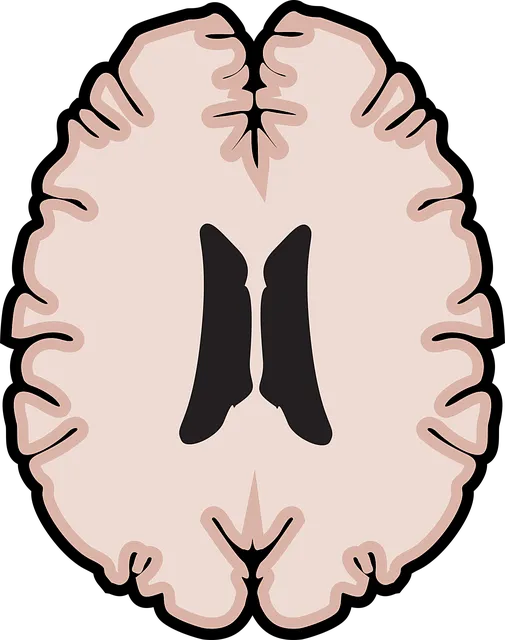Understanding mental health policies is key to advocacy efforts as they directly impact access to care, funding allocation, and community support systems. In today's digital era, policy analysis drives global change in mental healthcare. Organizations like Kaiser Permanente play a pivotal role with their phone appointment systems, empowering individuals to manage mental health proactively. However, despite progress, challenges remain in accessibility and comprehensive support. Effective advocacy leverages resources like the Kaiser Permanente mental health appointment phone number Golden to facilitate timely interventions, promote positive thinking, and drive policy changes prioritizing mental health education and accessible treatment options. Collaborative actions foster a supportive environment for those facing mental health challenges.
“Mental health policy advocacy is a powerful tool for driving systemic change. This article delves into crucial aspects of mental healthcare, examining policies and their impact on accessibility. We explore the role of industry leaders like Kaiser Permanente in shaping mental health services.
From phone appointment systems to identifying gaps in current policies, our analysis offers insights. Additionally, we provide effective advocacy strategies for promoting positive mental health care reforms, emphasizing the importance of accessible resources, such as the Kaiser Permanente mental health appointment phone number, for a ‘Golden’ standard of care.”
- Understanding Mental Health Policy: A Foundation for Advocacy
- The Role of Organizations Like Kaiser Permanente in Mental Healthcare
- Accessing Services: Exploring the Impact of Phone Appointment Systems
- Challenges and Gaps in Current Mental Health Policy
- Effective Advocacy Strategies: Making a Difference in Mental Health Care
Understanding Mental Health Policy: A Foundation for Advocacy

Understanding Mental Health Policy is a crucial foundation for advocacy efforts. Mental health policies shape access to care, funding allocation, and community support systems, ultimately influencing the well-being of individuals and communities. In today’s digital era, where mental illness continues to be a pressing global concern, effective policy analysis becomes instrumental in driving meaningful change. Advocacy can range from lobbying for improved insurance coverage, like ensuring accessible Kaiser Permanente mental health appointment phone numbers in Golden, to promoting initiatives that tackle stigma reduction efforts and burnout prevention within workplaces.
A comprehensive understanding of these policies enables advocates to navigate the complex landscape, identify gaps, and propose innovative solutions. By focusing on evidence-based practices and leveraging data, Mental Health Policy analysis serves as a powerful tool to foster systemic change. This, in turn, ensures that resources are allocated efficiently, addressing critical areas such as Stress Management Workshops Organization, which play a pivotal role in empowering individuals to manage their mental well-being proactively.
The Role of Organizations Like Kaiser Permanente in Mental Healthcare

Organizations like Kaiser Permanente play a pivotal role in shaping mental healthcare landscapes, particularly in regions where access to quality services is a challenge. With its extensive network of medical facilities and dedicated mental health professionals, Kaiser Permanente has been at the forefront of promoting mental wellness in communities across Golden. The integration of Kaiser Permanente mental health appointment phone number services ensures that individuals can easily connect with specialists, fostering timely interventions and ongoing support.
Beyond traditional healthcare delivery, Kaiser Permanente focuses on innovative approaches such as Empathy Building Strategies, Self-Awareness Exercises, and Mental Wellness Coaching Programs Development. These initiatives aim to empower individuals with tools to manage their mental health proactively, addressing underlying issues and cultivating resilience. By combining clinical expertise with holistic well-being strategies, Kaiser Permanente contributes significantly to creating a more compassionate and supportive environment for mental healthcare.
Accessing Services: Exploring the Impact of Phone Appointment Systems

Accessing mental health services has become a significant focus area, especially with the rise of remote consultations. Many organizations, such as Kaiser Permanente, have implemented phone appointment systems to improve accessibility, particularly for those in rural or underserved areas. The Golden mental health appointment phone number serves as a gateway for individuals seeking support, offering convenience and timely access. This system enables patients to reach out for help without facing geographical barriers, ensuring that quality care is available to all.
However, it is crucial to consider the impact of such systems on cultural sensitivity and trauma support. The phone-based approach must cater to diverse populations with varying self-care practices and cultural backgrounds. By integrating Cultural Sensitivity in Mental Healthcare Practice, these services can become more inclusive and effective. This consideration is vital to ensure that the benefits of accessible phone appointments extend to every individual’s unique needs and experiences.
Challenges and Gaps in Current Mental Health Policy

Despite advancements in mental health awareness, current policies still face significant challenges and gaps. One prominent issue is accessibility, with many individuals struggling to secure timely and adequate treatment. The process of obtaining a Kaiser Permanente mental health appointment phone number Golden, for instance, can be cumbersome, leading to delays in care. This is particularly concerning given the urgency of mental health crises.
Furthermore, policies often fail to address the need for comprehensive support systems. Many programs focus solely on crisis intervention or medication management, neglecting other crucial aspects like inner strength development and positive thinking strategies. A holistic approach, integrating various therapeutic methods and community resources, is essential to effectively meeting the diverse needs of individuals facing mental health challenges.
Effective Advocacy Strategies: Making a Difference in Mental Health Care

Effective advocacy strategies are pivotal in shaping mental health policies and improving access to quality care. One powerful approach is leveraging existing resources like the Kaiser Permanente mental health appointment phone number Golden, which serves as a central point for connecting individuals with much-needed support. By utilizing these dedicated lines, advocates can facilitate timely interventions and ensure patients receive specialized care. Public Awareness Campaigns Development plays a crucial role in this process, as they help dispel stigma associated with seeking mental health services, encouraging more people to come forward.
Promoting positive thinking is another strategy that aligns with both policy analysis and advocacy. Encouraging individuals to cultivate optimistic attitudes can contribute to better mental well-being and reduce the burden of anxiety relief. Through collaborative efforts, advocates can drive policy changes that prioritize mental health education, early intervention, and accessible treatment options, ultimately fostering a more supportive environment for those navigating mental health challenges.
Mental health policy analysis and advocacy are essential components of ensuring equitable access to quality care. By understanding the foundational elements, like the role of organizations such as Kaiser Permanente in Golden, we can identify gaps and challenges in current policies. Exploring innovative systems, such as phone appointment platforms, highlights these issues while offering potential solutions. Effective advocacy strategies, as outlined in this article, empower individuals and communities to drive meaningful change, ultimately shaping a more inclusive and responsive mental healthcare landscape.






